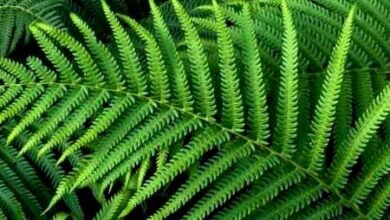
वनस्पति विज्ञान से संबंधित(90)…
| 1. Who is known as the father of ‘Biology’? = Aristotle.
2. Which language is the word Botany originated? = Greek. 3. Who is the father of botany? = Theoprestus. 4. Who was the first to use the term Biology? = Lamarck and Traviernes. 5. Who is called the ‘father of the class’? = Carl Warne Linnaeus 6. Which branch of biology is the environment studied? = Ecology. 7. Which scientist did the rendering of ‘cell theory’? = Schleiden and Schwann. 8. Whose statement is ‘living organisms are the physical basis of life’? = Lamark. 9. Whom was the science of heredity called ‘genetics’? = Watson. 10. The study of the internal structure of plants is called? = Body. 11. What is studied in phycology? = Algae. 12. The study of plants that produce herbicides is called? = Agriculture 13. The study of flowers is called? = Anthology. 14. What is the study related to the growth of ornamental trees and bushes? = Arboriculture. 15. What is the science of flower promotion called? = Floriculture. 16. Fossils are studied in botany? = Fossils. 17. What is the branch of botany related to the separation and composition of organisms? = Tissue culture. 18. What is studied in mycology? = Fungi. 19. What is the basic unit of classification? = Specialties. 20. What is the study of flowers called? = Anthology. 21. What is the branch of botany that gives information about heredity and variation? = Genetics. 22. What is agroforestry? = Along with agriculture, planting timber perennial trees on the same land. 23. How is the age of trees determined? = Based on the number of annual rings. 24. What are the fungi that grow on the bark of trees? = Carticols. 25. Which two classes of plants are made of lichen? = Fungi and Algae. 26. Which place is ‘Mulabhabasa’ found? = Bryophytes. 27. What are the most chromosomes found in? = Teridophytes. 28. Which one is a ‘living fossil’? = Cycus. 29. Respiratory roots are found in which plant? = Jusia. 30. Who gets ‘Sago’? = Cycus. ========== ========== =========== 1. ‘बायोलॉजी’ के जन्मदाता के रूप में किसे जाना जाता है? = अरस्तू. 2. बॉटनी शब्द की उत्पत्ति किस भाषा के शब्द से हुई है? = ग्रीक. 3. वनस्पति विज्ञान के जनक कौन हैं? = थियोफ्रेस्टस. 4. जीव विज्ञान’ (Biology) शब्द का प्रयोग सर्वप्रथम किसने किया था? = लैमार्क एवं ट्रैविरेनस. 5. किसे ‘वर्गिकी का पितामह’ कहा जाता है? = कार्ल वार्न लीनियस 6. पर्यावरण का अध्ययन जीव- विज्ञान की किस शाखा के अंतर्गत किया जाता है? = पारिस्थितिकी. 7. ‘कोशिका सिद्धान्त’ का प्रतिपादन किस वैज्ञानिक ने किया था? = श्लाइडेन और श्वान. 8. ‘जीवद्रव्य जीवन का भौतिक आधार है’ यह किसका कथन है? = लैमार्क. 9. किसके द्वारा आनुवंशिकता के विज्ञान को ‘आनुवंशिकी’ कहा गया? = वॉटसन. 10. पौधों की आंतरिक संरचना का अध्ययन कहलाता है? = शारीरिकी. 11. फाइकोलॉजी में किसका अध्ययन किया जाता है? = शैवाल. 12. शाक-सब्ज़ी उत्पन्न करने वाले पौधों का अध्ययन कहलाता है? = आलेरीकल्चर. 13. पुष्पों का अध्ययन कहलाता है? = एंथोलॉजी. 14. सजावटी वृक्ष तथा झाड़ियों के संवर्द्धन से सम्बन्धित अध्ययन कहलाता है? = आरबोरीकल्चर. 15. फूलों के संवर्द्धन के विज्ञान को क्या कहते हैं? = फ़्लोरीकल्चर. 16. जीवाश्म वनस्पति विज्ञान में अध्ययन किया जाता है? = जीवाश्मों. 17. जीवद्रव्य के पृथक्करण एवं संयोजन से सम्बन्धित वनस्पति विज्ञान की शाखा कहलाती है? = टिशु कल्चर. 18. माइकोलॉजी में किसका अध्ययन किया जाता है? = कवक. 19. वर्गीकरण की आधारीय इकाई क्या है? = स्पेशीज. 20. पुष्पों के अध्ययन को क्या कहा जाता है? = एन्थोलॉजी. 21. आनुवांशिकता एवं विभिन्नता के बारे में जानकारी देने वाली वनस्पति विज्ञान की शाखा को कहते हैं? = आनुवंशिकी. 22. एग्रोफ़ोरेस्ट्री क्या है? = कृषि के साथ-साथ उसी भूमि पर काष्ठीय बारहमासी वृक्ष लगाना. 23. वृक्षों की आयु किस प्रकार निर्धारित की जाती है? = वार्षिक वलयों की संख्या के आधार पर. 24. वृक्षों की छालों पर उगने वाले कवकों को क्या कहते हैं? = कार्टीकोल्स. 25. लाइकेन किन दो वर्ग के पोधों से मिलकर बने होते हैं? = कवक और शैवाल. 26. जड़ के स्थान पर ‘मूलाभास’ किसमें पाया जाता है? = ब्रायोफाइट्स. 27. सबसे अधिक क्रोमोसोम किसमें पाए जाते हैं? = टेरिडोफाइट्स. 28. कौन-सा एक ‘जीवित जीवाश्म’ है? = साइकस. 29. श्वसन मूल किस पौधे में पाई जाती हैं? = जूसिया. 30. ‘साबूदाना’ किससे प्राप्त होता है? = साइकस.
|





